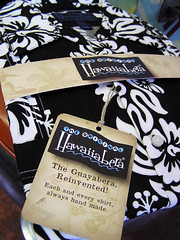Bargaining: All things come to those who ask
Exclusive To That's Right from Arthur Frommer's Budget Travel
It actually happened: the newlywed daughter of a friend of mine phoned home to report a tiff with her husband; could she come home right away (for a day or two)? But the cost of an immediate ticket from her West Coast city would have been a prohibitive $800.
So my friend phoned one of the hungrier, less popular airlines, asked to speak with a supervisor, and explained the problem. “We’ll call it a ‘family crisis fare’,” responded the airline official, who then authorized a waiver of the airline’s normal advance purchase rule. And my friend’s tearful daughter flew home to mommy and daddy for only $400, round-trip.
“Ask and it shall be given,” says the Bible, and nowhere does that admonition work more effectively than in travel. Many thousands of Americans (but still a minority of them) receive substantial travel discounts each year by simply requesting them—from an airline, ship line, or hotel. We realists call the practice “bargaining.” Others, more dignified, refer to it as smart consumerism.
To a larger number of Americans, bargaining itself—let alone bargaining over travel arrangements—is unthinkable, humiliating, something done only in Persian bazaars.
No other nationality of traveler regards it as such. You have only to stand in the lobby of a large Venetian hotel during off-season, and you will observe one European after another engaged in bargaining. “We are looking for a room that costs no more than €50 ($50),” says a very proper Englishman to the front desk clerk. In fact, that tourist knows that there is no such thing as a €50 room in that hotel; he is bargaining. He is saying, in effect, “We will stay in your hotel if you reduce your rate to €50; otherwise, we will walk down the block to another hotel.”
In other words, you can bargain with dignity; you do not have to act like the proverbial “screaming fishmonger,” or as in a tobacco auction. Often, the smartest of travelers will simply call a hotel and bargain over rates by asking if the hotel has a “teacher’s rate,” a “student rate”, a “minister’s rate,” a “civil service” rate, a “military rate,” a “corporate rate,” a “travel agent’s rate”, an “airline employee’s rate,” whatever.
In actual fact, it does not matter what category you name, and the hotel itself couldn’t care less; you could ask for a “housewive’s rate,” a “dentists’ rate,” and still get a discount if the hotel were heavily empty that night. What you are doing is bargaining. You are telling the hotel, politely, that you know it is a slow night, that they have plenty of vacancies, and here’s their chance to fill an otherwise-empty room by cutting the price to you; otherwise, you will walk down the block.
Note, carefully, that these tactics work only during off-season periods, or during slow cycles of the week. Most business hotels tend to empty out on weekends, when bargaining can be extremely effective; the same hotels tend to be fully booked from Monday through Thursday nights, when bargaining often doesn’t work. And the tactic works only if you are speaking with someone authorized to discount (someone working directly for the hotel), and not with a telephone reservationist staffing a nationwide “800” number.
Note, too, that in the U.S., where hotels tend to be widely scattered, not clustered (as in our example on Venice, above), bargaining is best conducted from a nearby phone booth, or by a phone call from the airport on arrival, or by a long distance call from your home before you leave on the trip. The hotel then knows that you are easily able to make a call to another hotel, if they don’t accede to your request. Usually in the States, bargaining doesn’t work if you are already in the hotel lobby; then the desk clerk knows it’s unlikely that you will walk out and travel the long distance to another hotel, if they refuse the discount.
Does bargaining work for travel products other than hotel rooms? You bet it does. Tales circulate in the travel industry of numerous well-dressed persons who, in the port of Miami, walk from ship to ship on a Saturday afternoon, asking ships’ pursers whether they still have any unsold cabins they’d like to fill at 50% off. They have their luggage, their traveler’s checks and their proofs of citizenship—and are ready, willing and prepared to board the ship right there and then, without knowing or caring where it is going; they simply want a week’s cruise, cheaply. I’ve heard of the same happening at the Manhattan pier from which the giant QE2 embarks for a trans-Atlantic crossing.
Certainly, too, charter flights are a proper object for bargaining. In my years as a charter tour operator in the 70s, I sent young staff members to see off our flights at the airport; they were not simply authorized, but directed, to sell off, on the spot, up to minutes before departure, any remaining, unsold seats, for any price that did not injure our dignity. If a bargainer, making a sudden appearance, offered $59 for the one-way crossing to London leaving in twenty minutes, we’d stamp off in righteous indignation; if they offered $99, that was another matter.
Some more prudent travelers would phone our office on the day before a charter’s departure to determine whether there were still empty seats to be had for a song. While we could not also provide them with hotel space at that late date, we’d welcome the calls as a means of squeezing out a few last dollars of profit from the flight. To my knowledge, a great many hard-bargainers continue to make such calls to tour operators or consolidators who have committed themselves to blocks of air tickets, and would rather cut the price on unsold seats than suffer empty seats.
The travel industry consists of perishable products (seats, rooms, cabins, cars) that must be sold for a particular departure or on a particular date, or else their value is lost forever. It is clearly better to receive some income for such a product, rather than no income. And that is why most travel suppliers will react positively to your requests for a discount, if they sense you are “shopping” for value, and will turn to an alternative supplier if they fail to grant the requested discount.
“Ask and it shall be given.” More often than you’d suspect.
That's Right.
HMK
Subscribe to:
Post Comments (Atom)




























































No comments:
Post a Comment